Surgical technology specialists are at the center of the action in surgery and never queasy at the sight of blood. Surg techs are trained professionals who work under the direction of a surgeon and the medical team to deliver the highest level of patient care before, during and after the surgery.
Individuals certified in surgical technology take on many critical roles in the operating room. Surg techs often help prepare patients for surgery, inspect and ensure surgical instruments are sterile, and make certain the operating room is organized for the medical team. During surgery, surg techs help to position patients on the operating table and drape them with sterile cloths. They troubleshoot equipment and may be called upon to clean and cauterize blood vessels or close wounds.
According to the Bureau of Labor Statistics, the median salary for surgical technologists in the U.S. for May 2022 was $56,350 per year ($27.09 per hour), with a much faster than average projected job growth of 5% between 2022 and 2032.
Want to learn more? Watch our most recent Virtual Information Session.



